Despite growing awareness, surrogacy is still often misunderstood. Whether you’re a potential intended parent, a curious friend, or someone considering becoming a surrogate, it’s important to separate fact from fiction. Today, we’re breaking down five persistent myths about surrogacy — and sharing the real truth behind each.
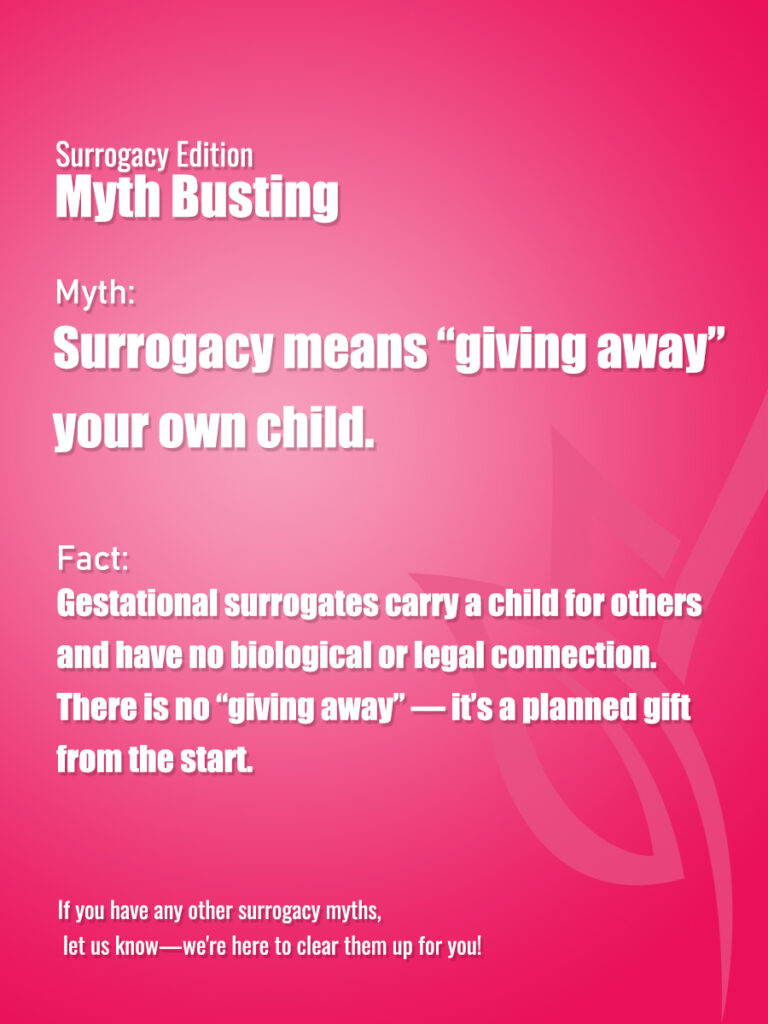
❌ Myth 1: Surrogacy means “giving away” your own child
✅ Truth: Gestational surrogates carry a baby created from someone else’s embryo — often using the intended parents’ or donors’ egg and sperm. There is no biological or legal connection between the surrogate and the baby.
Surrogates enter the process fully informed and emotionally prepared. The decision to become a surrogate is about helping someone else start or grow their family, not about creating a child of their own. It’s not “giving away” — it’s a gift that was never theirs to begin with.
Does a Surrogate Mother Share Blood with the Baby?
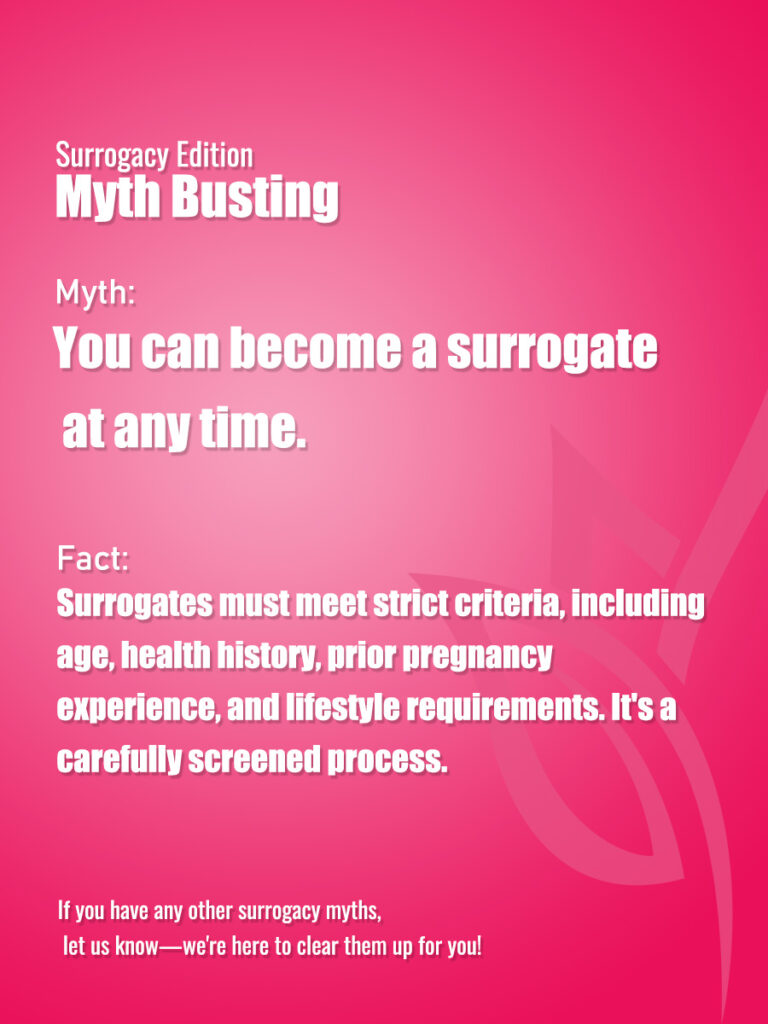
❌ Myth 2: You can become a surrogate at any time
✅ Truth: Becoming a surrogate involves strict medical, emotional, and lifestyle screening. Agencies and clinics look for women who:
- Are between 21–39 years old (varies by agency)
- Have had at least one healthy pregnancy and birth
- Live a stable lifestyle (non-smoker, no substance use, etc.)
- Are mentally and emotionally prepared for the journey
This isn’t a decision made overnight — it’s a deliberate and carefully guided process, designed to protect both the surrogate and the intended family.
Take A Surrogate Eligibility Quiz in 1 min
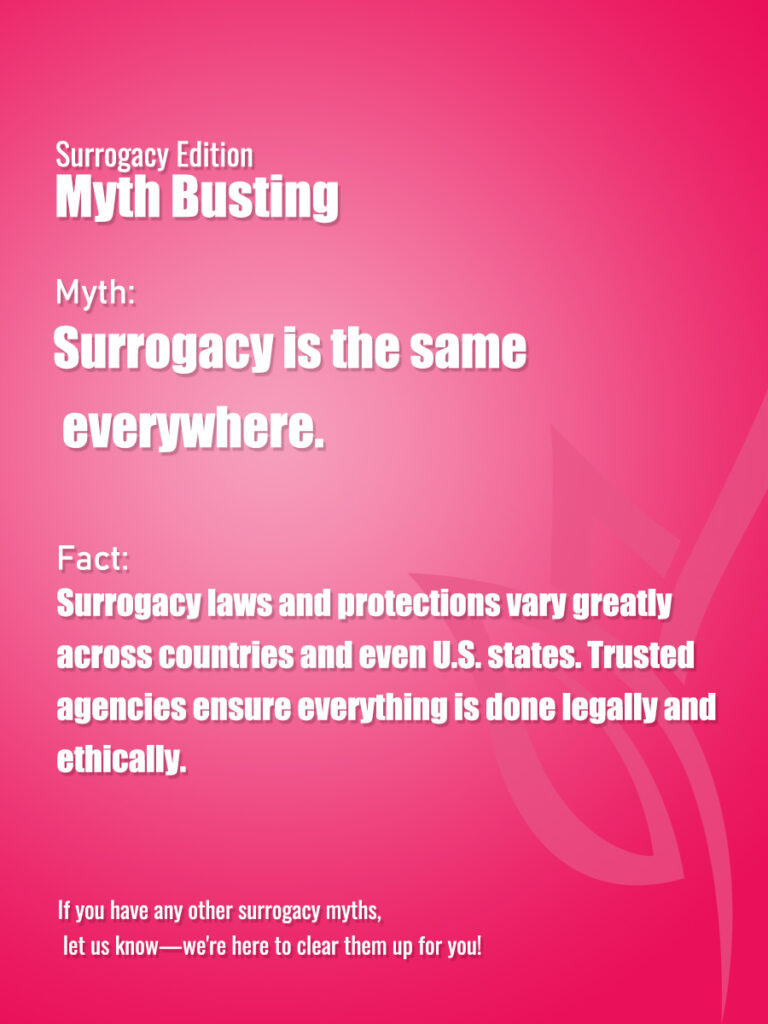
❌ Myth 3: Surrogacy is the same everywhere
✅ Truth: Surrogacy laws vary greatly between countries, and even between U.S. states. Some states fully support gestational surrogacy with legal protections in place. Others restrict or ban certain forms of it entirely.
That’s why working with a professional, ethical agency is essential. They navigate legal frameworks, draft proper contracts, and ensure that all parties are protected and informed at every step.
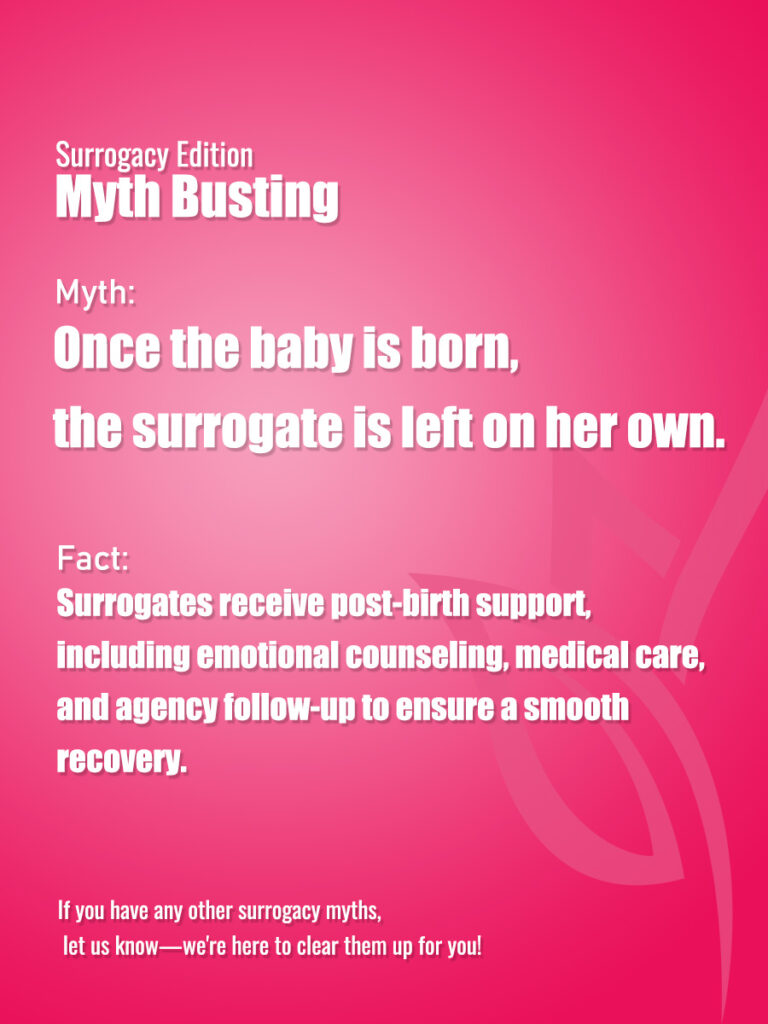
❌ Myth 4: Surrogates are forgotten once the baby is born
✅ Truth: Ethical surrogacy programs include post-birth support, often covering:
- Continued health insurance for recovery
- Mental health check-ins and counseling
- Ongoing communication and support from the agency
- Respect and gratitude from the intended family
Most surrogates say the bond they form with their intended parents — and the joy of seeing a family come together — is deeply meaningful and lasting. They’re never “left behind.”
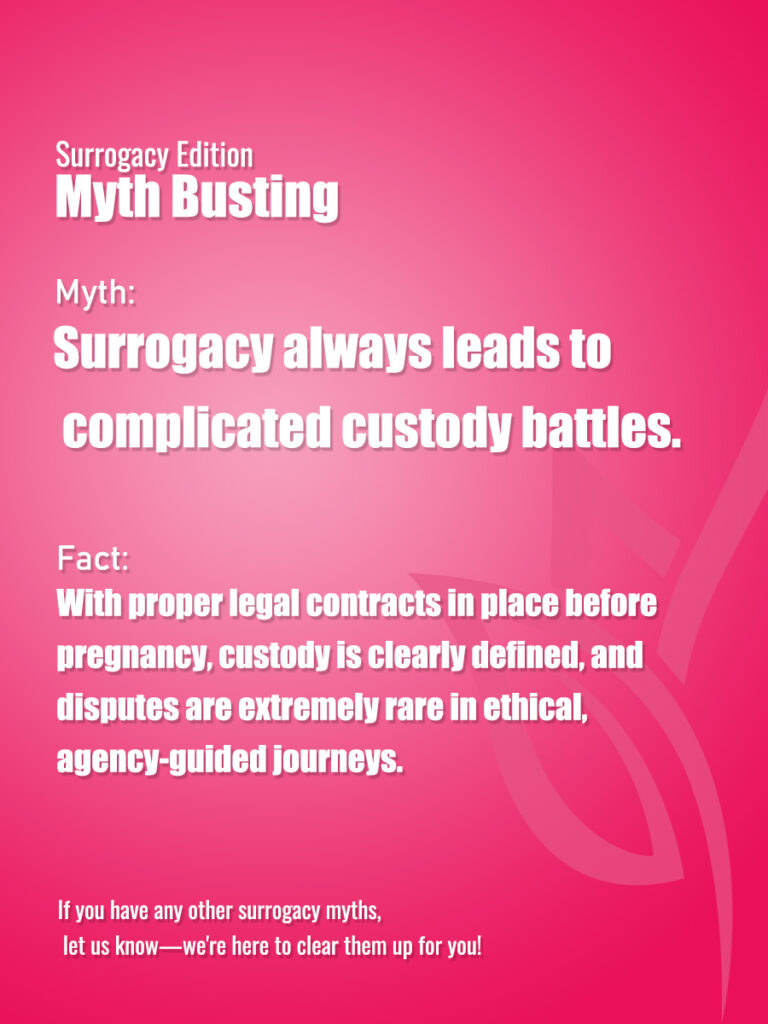
❌ Myth 5: Surrogacy often leads to legal disputes over custody
✅ Truth: One of the biggest fears many have is about “custody battles.” In truth, this is extremely rare — especially in gestational surrogacy. Detailed legal contracts are signed before embryo transfer. These documents outline parental rights, responsibilities, and financial agreements.
As long as everything is handled through a reputable agency and legal counsel, the process is smooth, clear, and safe. Most journeys are filled not with conflict, but with trust, communication, and joy.
More : Understanding Surrogacy Contracts: Protecting the Rights of All Parties
💬 Final Thoughts
Surrogacy is a powerful and compassionate way to build families — and like anything powerful, it deserves to be understood accurately. By busting these myths, we hope to replace fear and confusion with clarity, empathy, and inspiration.
Still have questions about surrogacy? Contact us anytime or explore our Surrogacy 101 guide for more insights.
📩 Ready to learn if surrogacy is right for you? Take our 60-second quiz here!
🔗 Take the Quiz




